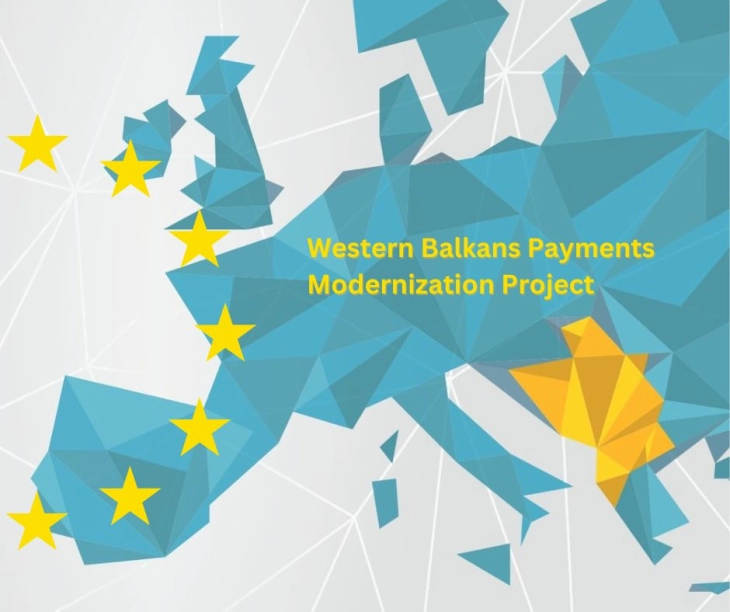World Bank project to support advancing modernization and integration of payment systems in Western Balkans
- The World Bank's "Western Balkans Payments Modernization Project", which includes the National Bank as well as the central banks in the region, will ensure further digitalization and connection of the countries in the region in the area of payments in order to facilitate cross-border trade, enhance competitiveness, and reduce costs for international payments seeing that at present, the Western Balkan economies must pay six times more than their EU counterparts to settle them.

Skopje, 2 February 2024 (MIA) - The World Bank's "Western Balkans Payments Modernization Project", which includes the National Bank as well as the central banks in the region, will ensure further digitalization and connection of the countries in the region in the area of payments in order to facilitate cross-border trade, enhance competitiveness, and reduce costs for international payments seeing that at present, the Western Balkan economies must pay six times more than their EU counterparts to settle them.
The project, which the World Bank is implementing in collaboration with the Regional Cooperation Council (RCC) and Central European Free Trade Agreement (CEFTA) Secretariat, and with the support of the European Commission (EC), consists of several pillars, the National Bank said on Friday.
"One pillar of the project focuses on adopting EU payment regulations and other requirements to enable Western Balkan economies to join the Single European Payments Area (SEPA), in line with the EU's new Growth Plan for the Western Balkans. Another pillar focuses on modernizing payment infrastructures, i.e. establishing Fast Payment Systems (FPS) and interoperability. FPS enable instant fund transfers 24 hours a day, every day of the year. This pillar also includes activities in terms of introduction of innovative fintech solutions for making payments, as well as connection to the TARGET Instant Payment Settlement (TIPS) of the Eurosystem," the National Bank adds.
Digital payments, the central bank adds, can help decrease costs and expand financial access to approximately 1.9 million people in the Western Balkans. Also, digital payments can facilitate access to finance and contribute to closing gaps such as gender and urban-rural disparities, thus contributing to the reduction of inequality.
According to the National Bank, digital payments are traceable and transparent, which not only facilitates tax collection, but also helps in combating corruption and crime, as research shows that a mere 10 percent increase in the share of digital payments leads to a reduction of about two percent in the size of a country’s shadow economy.
Manager of the Payment Systems Department at the National Bank of the Republic of North Macedonia, Igor Velichkovski, points out that the project enhances the regional cooperation and supports a faster integration of the Western Balkan countries within SEPA which is expected to bring benefits for companies and citizens in terms of cheaper, faster and more convenient cross border payments.
Photo: National Bank







